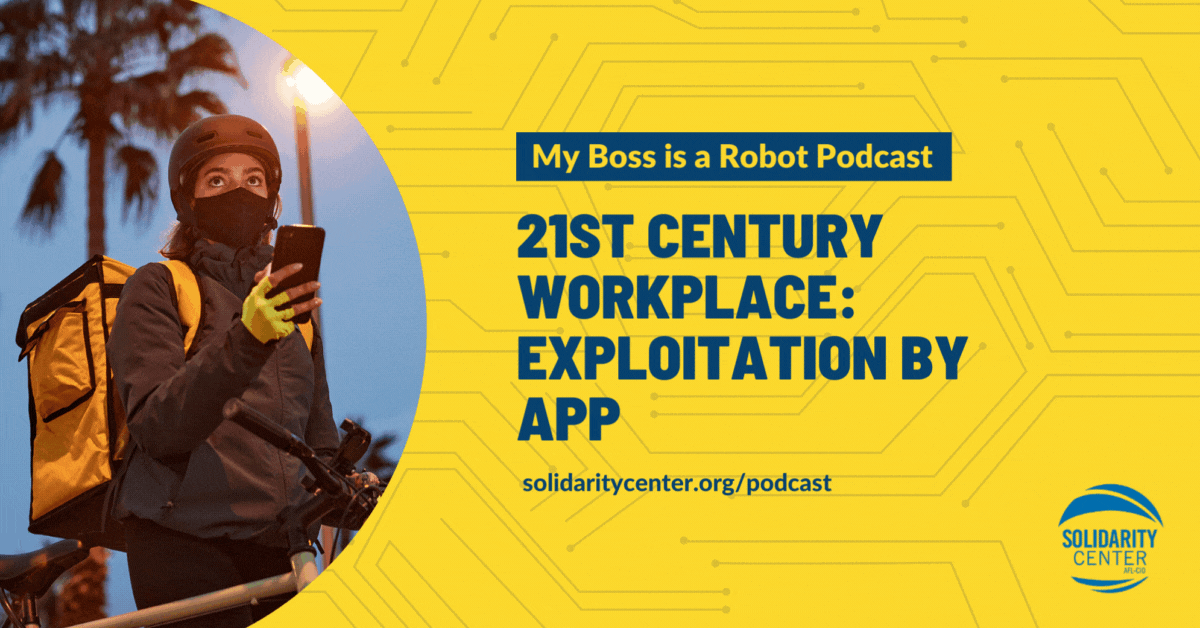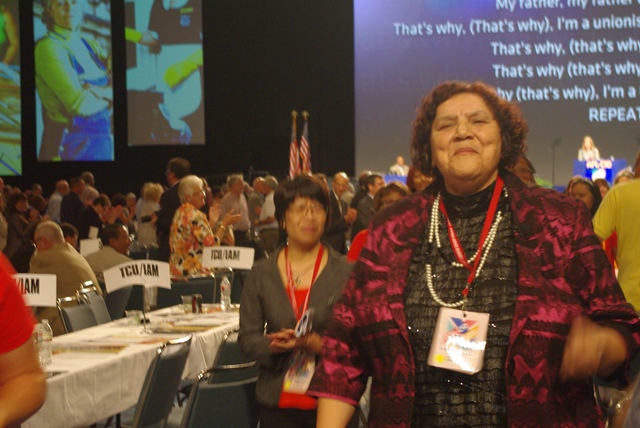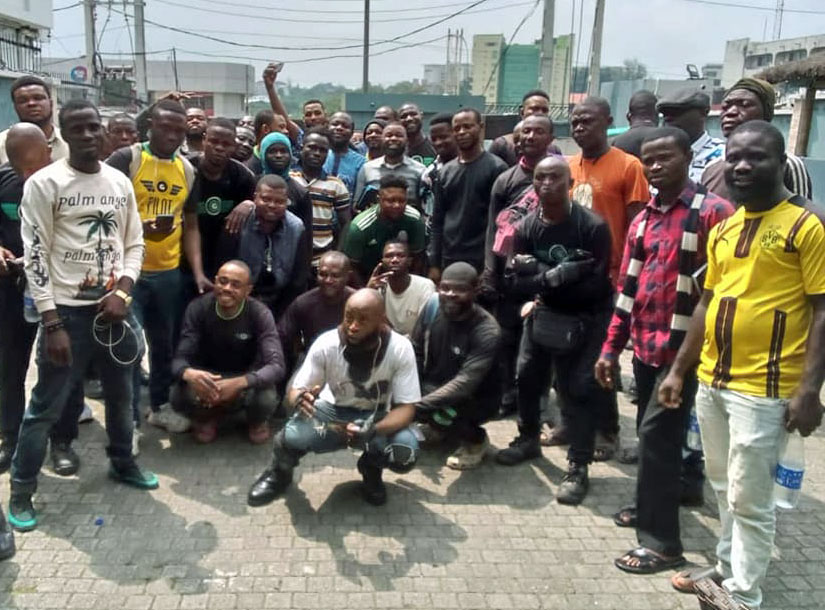If you work seven days a week, 12 hours a day and don’t make enough money to pay the bills, you can talk to your boss, right? Not if your boss is an app. "My Boss Is a Robot," a new series on The Solidarity Center Podcast, explores the challenges delivery drivers...

The Solidarity Center assists workers in the informal economy, such as market vendors in Zimbabwe, come together to assert their rights and raise living standards. Credit: ZCIEA
Some 2 billion people work in the informal sector as domestic workers, taxi drivers, and street vendors, many of them women workers. Informal economy work now comprises the majority of jobs in many countries and is increasing worldwide. Although informal economy workers can create up to half of a country’s gross national product, most have no access to health care, sick leave or support when they lose their jobs, and they have little power to advocate for living wages and safe and secure work.
The Solidarity Center is part of a broad-based movement in dozens of countries to help workers in the informal economy come together to assert their rights and raise living standards. For instance, three affiliates of the Central Organization of Trade Unions-Kenya (COTU-K), a Solidarity Center partner, signed agreements with informal worker associations to unionize the workers, enabling them to access to the country’s legal protections for formal-sector employees.
Find out more about informal workers gaining power by joining together in unions and worker associations in this Solidarity Center-supported publication, Informal Workers and Collective Action: A Global Perspective.
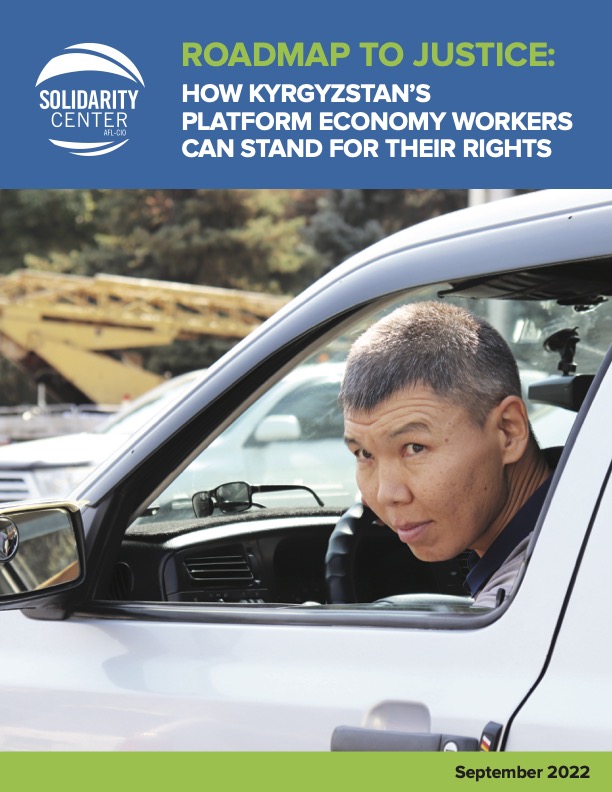
Roadmap To Justice: How Kyrgyzstan’s Platform Economy Workers Can Stand For Their Rights (2022)
The digital platform share in the economy in Kyrgyzstan is growing, and with that growth, an increasing number of people are working through these platforms. Due to its growth, the vulnerability of workers in this sector has also become more apparent, especially for...
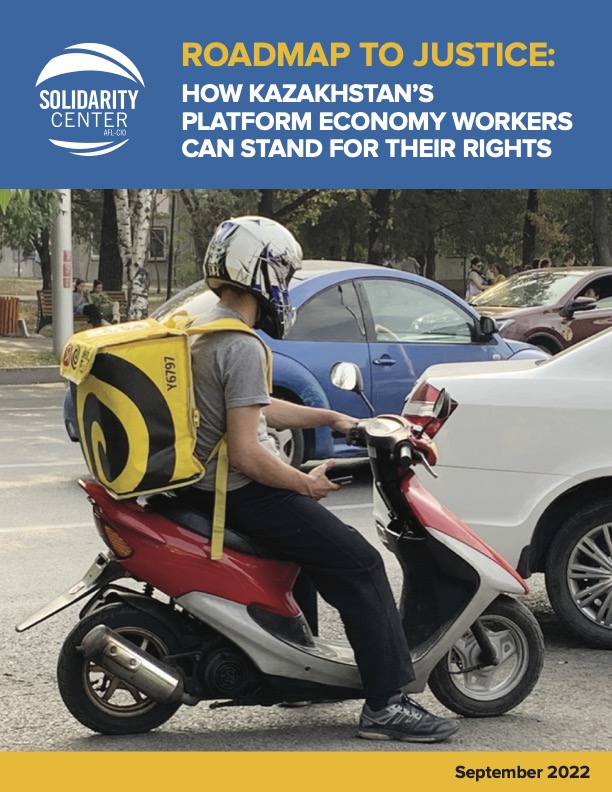
Roadmap To Justice: How Kazakhstan’s Platform Economy Workers Can Stand For Their Rights (2022)
Kazakhstan has the most developed digital market in the region, and digital platform companies operate in Kazakhstan’s major cities. With the sector’s growth, the vulnerability of workers in this segment has also become more apparent, especially for marginalized...
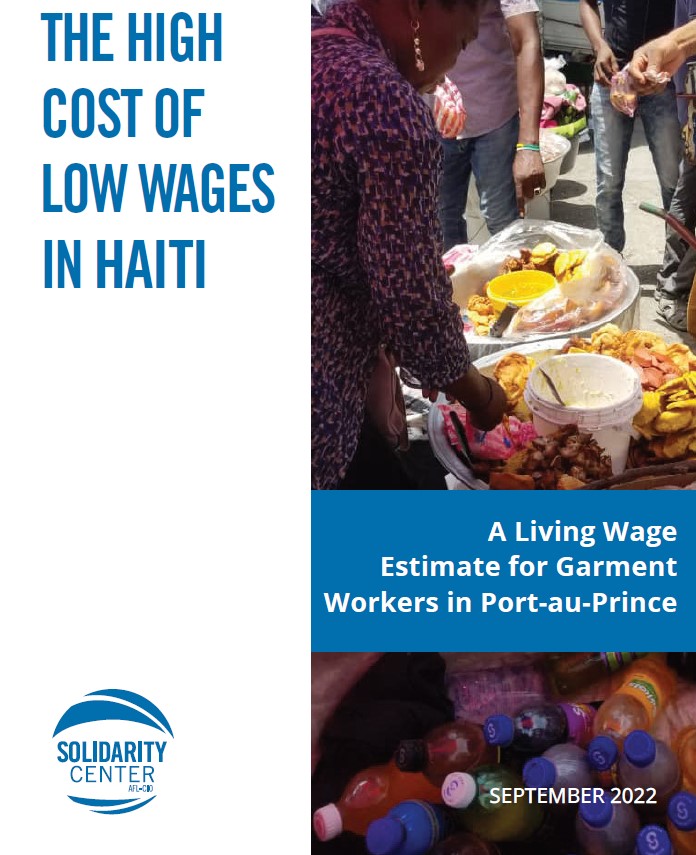
THE HIGH COST OF LOW WAGES IN HAITI (2022)
Haitian garment workers face increasing difficulty in covering basic expenditures as prices soar while wages hover far below the cost of living. Download in English and Haitian Creole.
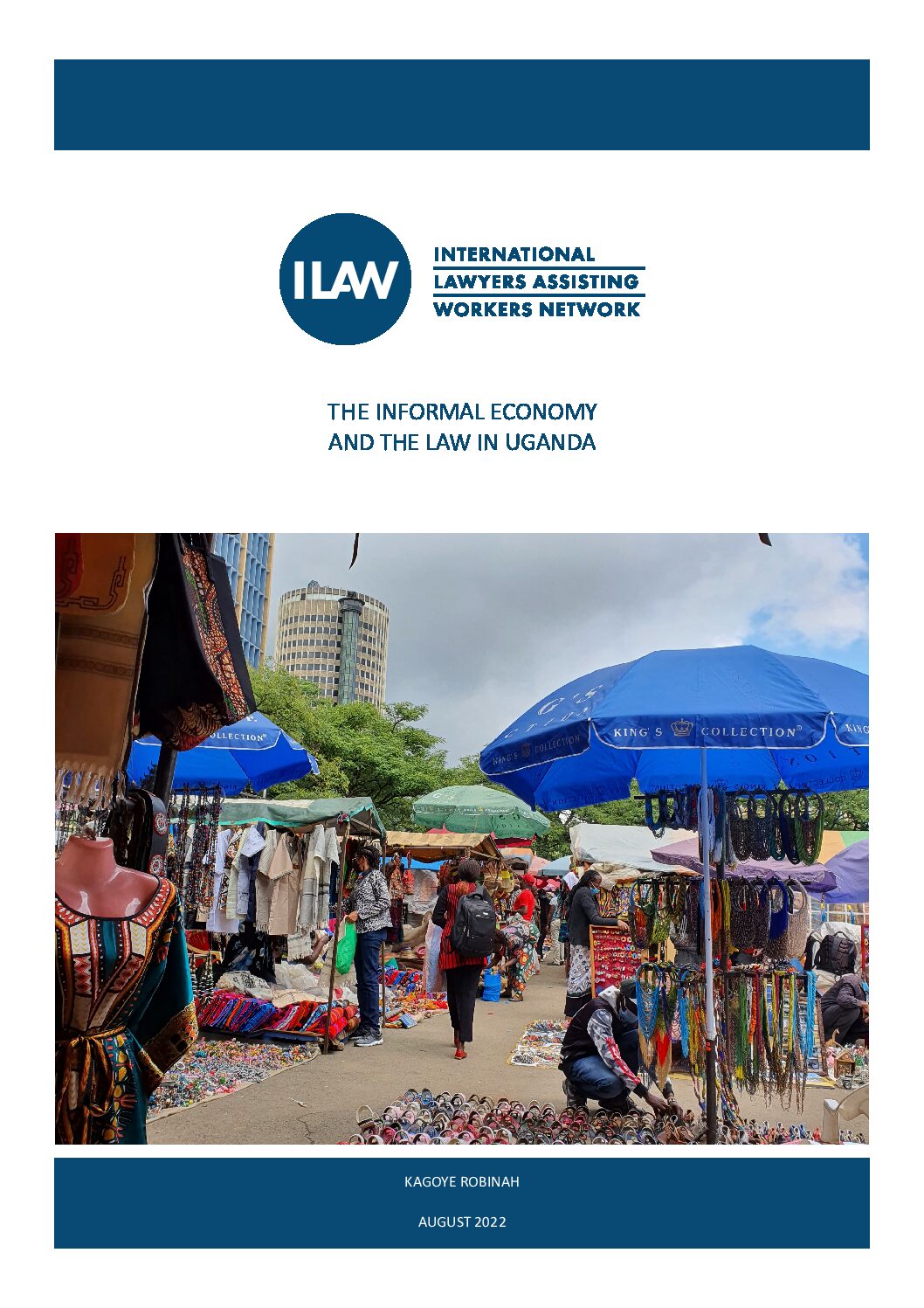
The Informal Economy and the Law in Uganda
The report analyzes how the current legal framework in Uganda fails to fully recognize and protect the rights of workers in the informal economy, even though they constitute 85 percent of Uganda’s labor force and over 50 percent of Uganda’s GDP. The gaps in Ugandan...
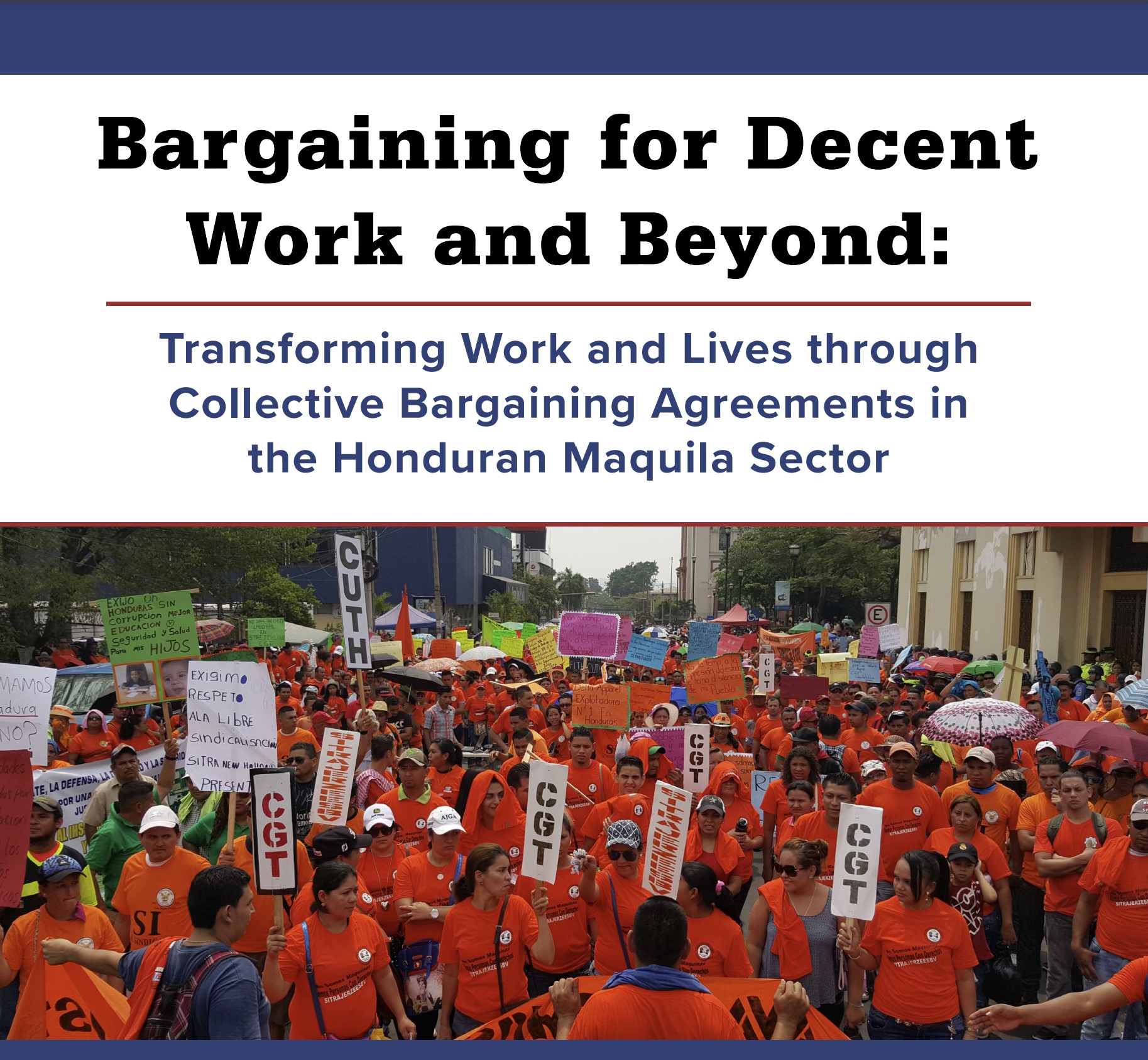
Bargaining for Decent Work and Beyond: Transforming Work and Lives Through Collective Bargaining Agreements in the Honduran Maquila Sector (2022)
Unions in the Honduran maquila sector bargain to improve work conditions and address gender-based violence at work, and so provide options for those who may migrate to seek jobs, a Solidarity Center report finds. Download in English and Spanish.
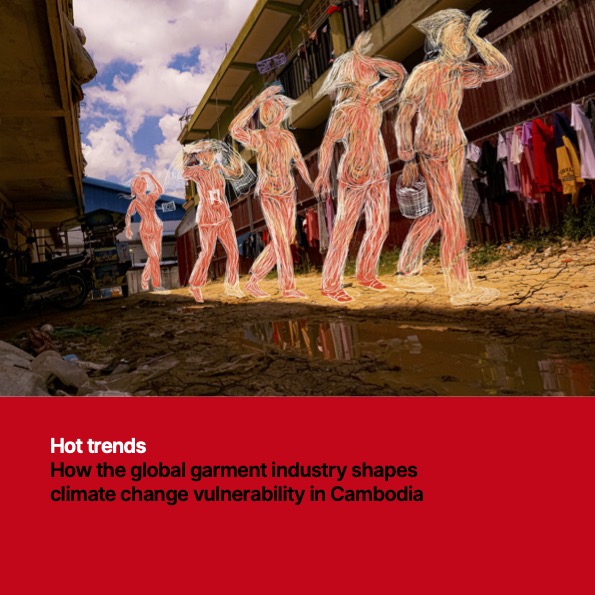
Hot trends: How the global garment industry shapes climate change vulnerability in Cambodia (2022)
In response to mounting public pressure, companies have moved rapidly to launch media campaigns highlighting their commitment to a green future. The global garment industry is no different. Behind much of this “greenwashing” remains the reality that the garment supply...

